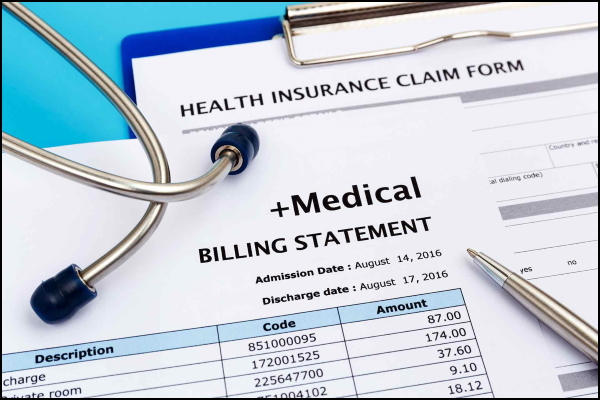
Suspending all reality, you find yourself in an action-movie battle for your life. Rob O'Neill, popularly known on Twitter as '@mchooyah' would justifiably snicker that none of us will ever endure this fate. We only see it on the big—or little screen. He should know—Rob is of course The Man Who Shot Libert... oh, sorry—Bin Laden!
Anyway, back to our scenario: Which one weapon would you choose for this 'life-or-y-you-know' struggle—a carrot, a stick, or intelligence (spy stuff, like CIA or something)? With the carrot, you could possibly bribe your enemy to let you live. But who's gonna trust that? Now for the stick. If it's a handy one, you could beat him senseless. Maybe. But what if it's not one enemy, but a horde? Here again, I think Mr. Mchooyah's counsel could be very handy here. I predict he'd choose intel every time. So let's apply this principle to our real lives.
One of the scariest dilemmas we all face is the runaway costs of healthcare. It's 1/6 of the entire U.S. Economy, and we don't know what it will cost until AFTER we make a purchase, in most instances. Oh, there's always the uninsured, elective purchases—like Botox®, Lasik, CoolSculpting®, and various dental, derma and eye procedures that our insurers consider to be our business, not theirs. These are highly competitive, and we usually know the price beforehand. They advertise to us, and they compete for our business. Then there's the Wellness exams; no co-pay even—making us all feel like we're getting a benefit, of all things!
As for all those other insured events: How do you feel, knowing that is where all the risk and uncertainty lay. When your physician gets that pinched up look and advises "I think you need an MRI on this..." and he sends you down the main drag to the clinic with all those big, space-age machines that go "knock-knock-knock" you don't know what the cost will be until after you obligate yourself. Oh, some astute consumers occasionally wrest the price out of the billing department, or get a "pre-authorization" from their employer-sponsored insurer. But most of these purchases are undertaken absent the light of day where cost is concerned. Same with visiting our specialists.
We previously blogged about an eye-opening study chronicled by Yale professor of Healthcare Economics Zack Cooper. He recounted how so many consumers would actually drive PAST a cheaper imager to get to the more expensive one to which their doctor referred them. Sometimes many hundreds or even thousands of dollars hung in the balance. One conclusion was that what are known as "Price Transparency Tools" are either non-existent, questionably helpful, or too-little-too-late.
As we ramp up DOC$ into what we believe will eventually be the world class standard of Medical Price Transparency Tools, we've become fans of several journalists, academics, and authors specializing in the Healthcare Economy. One such person is Erica Socker, VP for Healthcare at Arnold Ventures, a philanthropy fund. Ms. Socker has co-authored a recent blog in Health Affairs (healthaffairs.org) titled Making Employer-Sponsored Insurance More Affordable.
The chief premise is that government coersion (our stick) applied against providers—hospitals, clinics, specialists, and even pharma—to actually cap prices represents the best tool for saving us all money. Exposure to crushing medical bills is a dangerous prospect, and DOC$ endorses some government initiatives. Congressional action to compel hospitals to publish prices, and legislation to outlaw "surprise bills" count as useful steps to rein in the most outrageous abuses. Those who choose to believe the government stick is a cure-all should spend a few minutes on the internet trying to find those hospital prices.
DOC$ remains firm in our belief that there HAS TO BE a role for competition—sadly and dangerously lacking right now. To fix this, PRICE TRANSPARENCY needs to become a priority for all of us healthcare consumers. We need to join together to shine the light of day on prices—by sharing with each other what we pay, and then in turn using DOC$ to comparison shop.
We are already showing some great comparisons of prices for MRI, CT-Scan, and many other procedures—in major metro markets like Philadelphia, Chicago, Dallas, Los Angeles, and others. We need your help to join us and share information on your medical purchases—pleasant or painful—in your area. If you got a $2,250 MRI, that's frustrating and extremely painful for your family's finances. If you received a $275 MRI, you might feel lucky by comparison. Information about BOTH experiences will help us all immensely.
Know the Cost of Healthcare BEFORE You Go In!